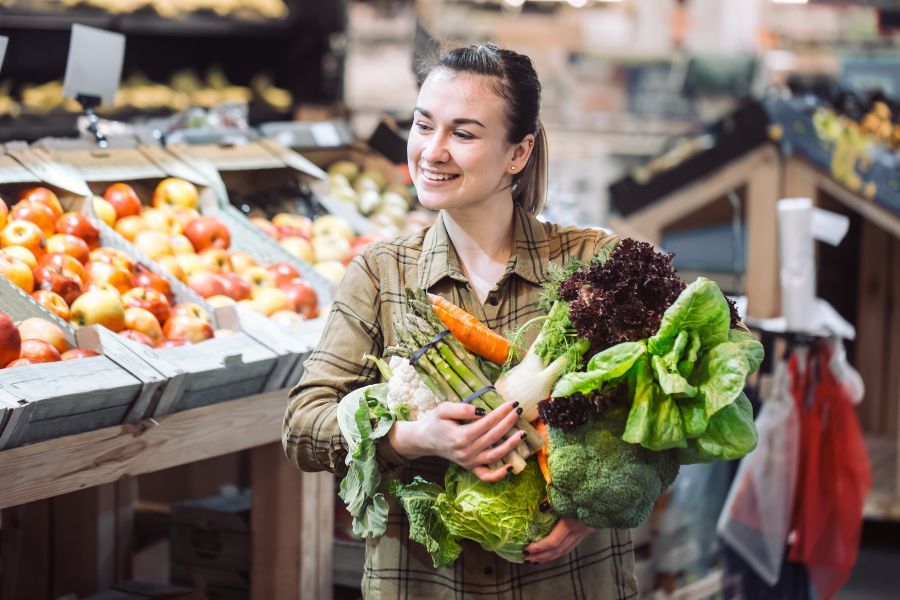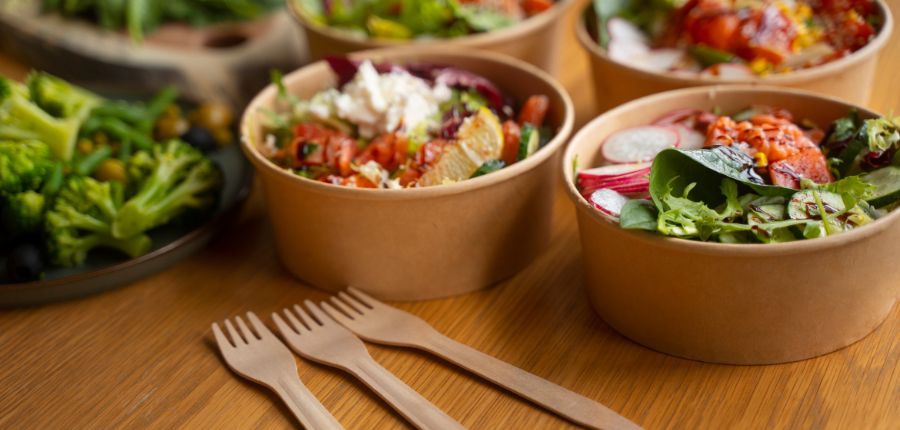In our increasingly interconnected world, the choices we make about food can have far-reaching consequences. Building sustainable eating habits isn’t just about personal health; it’s about the health of the planet as well.
These 5 strategies will not only guide you toward a healthier diet but also help protect the environment and promote sustainable agriculture.
1. Choose Local And Seasonal Foods
Eating locally and seasonally is a cornerstone of sustainable eating. When you opt for locally grown and seasonal foods, you support local farmers and reduce the carbon footprint associated with long-distance transportation.

These foods are often fresher, retaining more nutrients, and they require fewer preservatives and packaging.
Additionally, purchasing from local farmers’ markets or joining a community-supported agriculture (CSA) program can connect you with the people who grow your food, fostering a sense of community and transparency.
2. Reduce Meat Consumption, Especially Red Meat
The meat industry is a significant contributor to greenhouse gas emissions, deforestation, and water pollution. To promote sustainability, consider reducing your meat consumption, with a particular focus on red meat (beef and lamb) and processed meats.
These are among the most resource-intensive and environmentally damaging protein sources.
Experiment with “Meatless Mondays” or try incorporating plant-based proteins like beans, lentils, tofu, and tempeh into your diet.

If you do eat meat, choose lean cuts and look for certifications like “grass-fed” or “organic” to ensure more sustainable and humane practices.
3. Minimize Food Waste Through Planning And Storage
Food waste is a global problem with severe environmental consequences. To build sustainable eating habits, minimize food waste by planning your meals, using leftovers creatively, and storing food correctly to extend its freshness.
Invest in reusable food storage containers and consider composting to reduce the environmental impact of food scraps. Apps and websites can also help you manage your food inventory and reduce waste by suggesting recipes based on what you have on hand.
4. Choose Sustainable Seafood Options
Seafood is a healthy source of protein, but overfishing and unsustainable fishing practices pose a threat to marine ecosystems.
When selecting seafood, make informed choices by looking for certifications like the Marine Stewardship Council (MSC) or consulting resources like the Monterey Bay Aquarium’s Seafood Watch program.
These organizations evaluate and certify seafood products based on their environmental impact. By opting for sustainably sourced seafood, you support responsible fishing practices and help protect our oceans for future generations.
5. Cook At Home For Healthier, Environmentally Friendly Meals
Cooking at home offers numerous benefits for sustainable eating. It allows you to have better control over the ingredients you use, enabling you to choose locally sourced, organic, and sustainably produced items.

Home-cooked meals tend to be lower in salt, sugar, and unhealthy fats, contributing to your overall health.
Additionally, preparing your meals reduces reliance on processed and packaged foods, which often come with excessive packaging waste.
Cooking at home fosters creativity in the kitchen, encouraging you to experiment with new recipes and flavors while fostering a deeper connection to your food.
Conclusion
Building sustainable eating habits is a holistic approach to nourishing your body and protecting the planet. By choosing local and seasonal foods, reducing meat consumption, minimizing food waste, selecting sustainable seafood options, and cooking at home, you can make a significant impact on both your well-being and the environment.
Sustainable eating is a journey, and every step you take towards more conscious food choices contributes to a healthier and more sustainable future for all.
So, start today, and enjoy the benefits of a diet that’s good for you and the planet.
